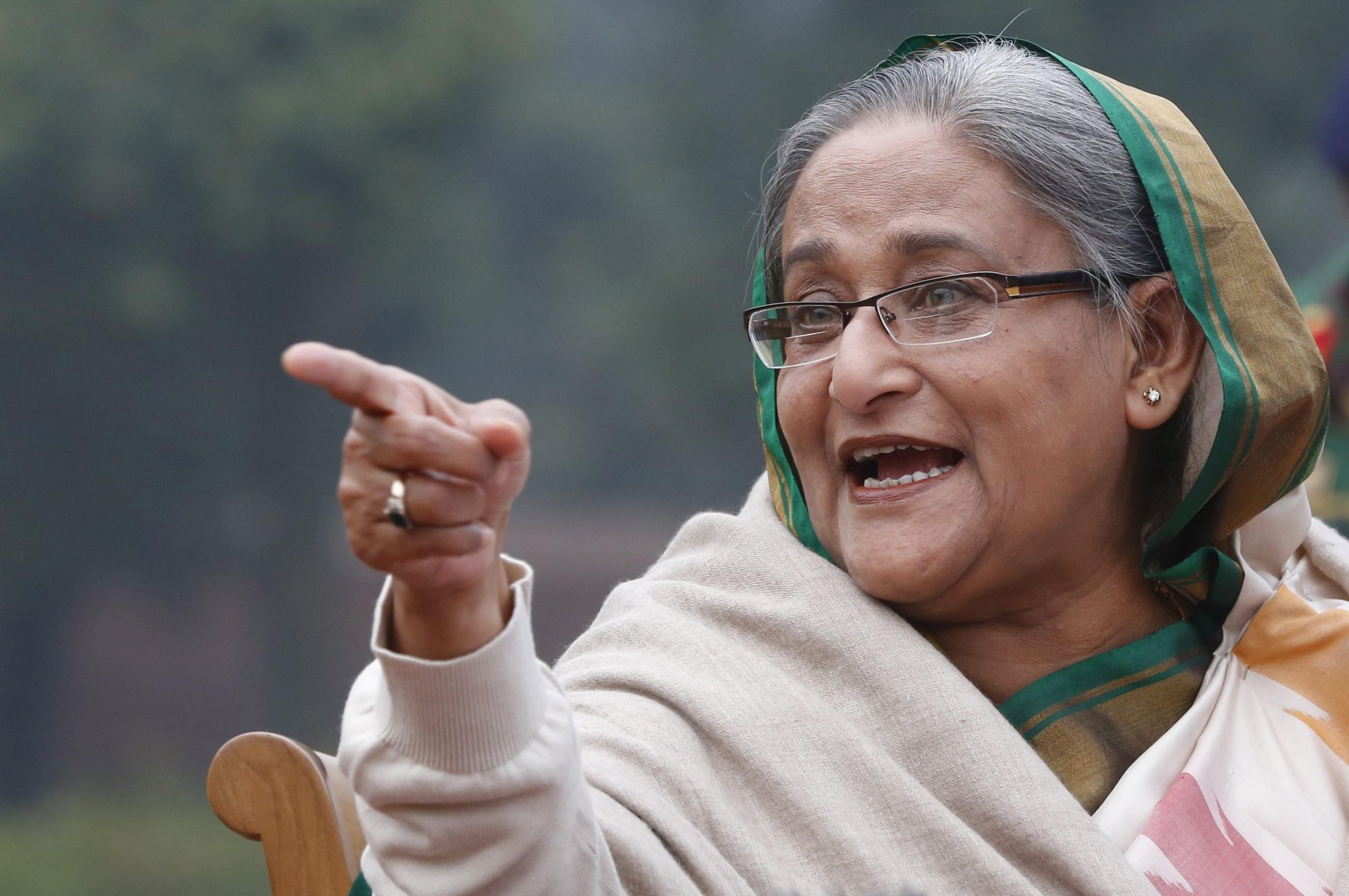
Bangladeshis in Hong Kong with business ties to their home country said their operations in fields such as manufacturing, trading and hospitality were disrupted during the month-long protests that led to the ousting of the country’s prime minister on Monday.
The protests, which started in July as a call for an end to a job quota system for the civil service, snowballed into a mass movement driven by students, resulting in the deaths of hundreds.
It eventually led to the fall of Sheikh Hasina, who had governed the country as prime minister for 15 years.
Do you have questions about the biggest topics and trends from around the world? Get the answers with SCMP Knowledge, our new platform of curated content with explainers, FAQs, analyses and infographics brought to you by our award-winning team.
The protests escalated despite Bangladesh’s top court intervening to scale back the quota system, which students said froze them out in favour of allies of Hasina and her long dominant Awami League party.
While the protests appeared to have eased after the leader fled the country and the government-imposed curfew lifted on Tuesday morning, some businesses continue to feel lingering effects.
Syed Mohammed Mohiuddin, president of the Bangladesh Association of Hong Kong, said the business of his garment company was mostly affected in the past month.
His companies’ two factories, located in the country’s capital Dhaka and Chattogram, were closed for about a week from late July to early this month because of the protests and the curfew.
“We were supposed to travel to Bangladesh, but we could not travel because of safety [concerns], chaos and protests,” Mohiuddin said.
He said his company also had to delay the delivery of garments to their clients because of the disrupted factory production.
Mohiuddin said “some percentage” of the business was affected although he had not figured out the precise loss, but he remained hopeful of an improvement.
Another member of the association, who declined to be named to protect his family, said the business of his international trading company, which offers services in telecommunications, was also largely interrupted in the past month.
While he used to travel back to Bangladesh almost every month to manage his business, he was not able to do so in the past two months because of the protests.
“Our staff could not go to office ... we cannot make good communication, and so our business [was] very badly hampered,” he said, adding that he also needed time to calculate the loss of the business.
Mobile internet has been shut down by the Bangladesh authorities in a bid to quell the unrest.
He remained anxious about the safety of some family members in his home country, where he said further clashes between the new interim government and the protesters could persist.
“I have already told [my relatives], if possible, just go [to] another country for a few days, a few weeks, to take shelter and when we can ensure that Bangladesh is a little bit safe then come back,” he said.
But Mohiuddin remained a bit more optimistic that the country was at a turning point.
“The protest is over. People are celebrating actually,” he said. “Everything is coming under control.”
He said he was more worried for his relatives in Bangladesh when the country was disconnected from the outside world for a few days about two weeks ago.
“At that time, we were definitely worried because we couldn’t connect with them,” he said. “We were in total [darkness] and we were very worried because we couldn’t get any information about what was going on.”

He also believed there would not be any big issues with the new government.
Another Hong Kong based Bangladeshi businessman who runs a resort in the third largest city Khulna, said his facility had stopped operating in the past two days and sustained some exterior damages.
“I have about 20 employees and they are safe. They are hiding,” he told the Post on the condition of anonymity to protect family members who are still living in the country.
“The whole situation is terrible. Students were killed,” the resort operator said. “But the thing is today the situation is [still] going on. I think in the last 50 years, we never had this kind of situation in our country. The law and order is totally zero.”
He said he had faith in the new interim government to settle the chaos, while condemning the protesters.
“They are almost everywhere. They are burning and destroying, killing police, attacking houses and businesses and robbing. They are doing whatever they want. Currently [there are] no police on the road. The army is there, but [the] army [has] not yet [taken] any action.”
An Immigration Department spokesman said the authority had not received any requests for help from Hongkongers in Bangladesh, and it would keep a line of communication open with the embassy and authorities in the country.
Additional reporting by Oscar Liu
More from South China Morning Post:
- Bangladesh dissolves parliament, paving way for elections to replace ousted PM Hasina
- ‘It’s like a dream’: joy and trepidation as Bangladesh’s migrant workers stunned by Hasina exit
For the latest news from the South China Morning Post download our mobile app. Copyright 2024.







































